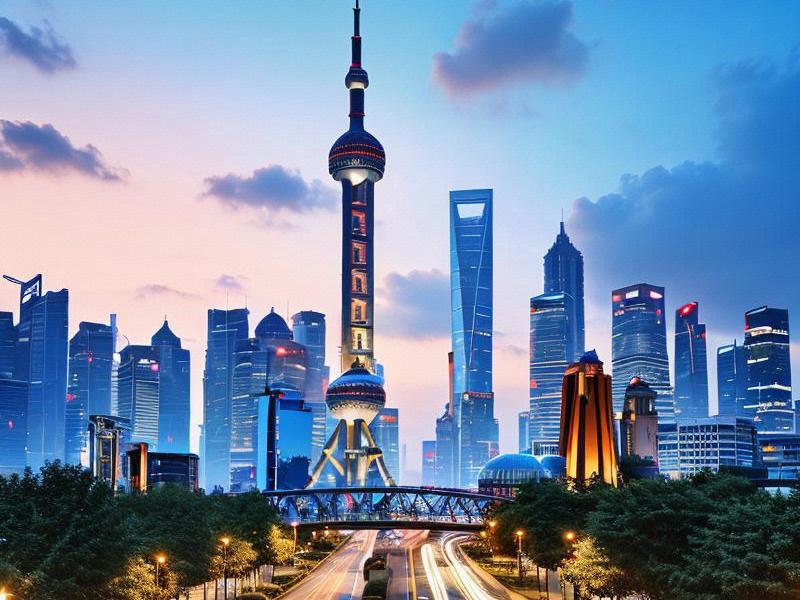
Shanghai, located on the eastern coast of China, is the largest city in the country and a global financial center. With its unique geographical location and historical background, Shanghai has become a melting pot of Chinese and Western cultures, attracting people from all over the world.
Historical Background
Shanghai's history can be traced back to the Tang Dynasty (618-907 AD), when it was a small fishing village. During the Song Dynasty (960-1279 AD), Shanghai began to develop as a port city. In the Ming and Qing Dynasties, Shanghai gradually became an important commercial port in China.
In 1842, after the First Opium War, Shanghai was forced to open as a treaty port, and foreign powers began to establish concessions in Shanghai. This period of history had a profound impact on Shanghai's urban construction, economic development, and cultural exchanges, laying the foundation for its status as an international metropolis.
Economic Significance
Shanghai is the economic center of China and one of the most important financial centers in the world. The city has a complete industrial system and strong economic strength, with key industries including finance, trade, manufacturing, and information technology.
The Shanghai Stock Exchange is one of the largest stock exchanges in Asia, attracting numerous domestic and foreign investors. In addition, Shanghai Port is the busiest container port in the world, with its throughput ranking first globally for many consecutive years. These economic strengths have made Shanghai an important engine of China's economic development.
爱上海最新论坛 Cultural Diversity
As a city that has been influenced by both Chinese and Western cultures, Shanghai has a rich and diverse cultural heritage. The city's unique blend of traditional Chinese culture and modern Western culture creates a vibrant urban atmosphere.
In Shanghai, you can find ancient temples, classical gardens, and historical buildings that reflect the city's rich history. At the same time, the city also has many modern art galleries, theaters, and music venues that showcase its cultural vitality.
Shanghai cuisine is also famous for its unique flavor, with representative dishes such as Xiaolongbao (soup dumplings), Shengjianbao (pan-fried dumplings), and Haipai cuisine. These dishes not only reflect the city's culinary traditions but also its cultural diversity.
Modern Development
In recent years, Shanghai has been at the forefront of China's modernization drive, with rapid urban development and continuous innovation. The city has implemented a series of major infrastructure projects, such as the construction of the Hongqiao International Airport, the Shanghai Maglev Train, and the Yangshan Deep Water Port, which have significantly improved the city's transportation and logistics capabilities.
At the same time, Shanghai has also been actively promoting the development of high-tech industries and modern services, such as finance, trade, and information technology. These industries have become important pillars of the city's economy, driving its continuous growth and development.
新上海龙凤419会所 In addition, Shanghai has also been committed to environmental protection and sustainable development. The city has implemented a series of measures to improve air quality, water quality, and urban greening, creating a more livable urban environment.
International Influence
As one of the most important cities in the world, Shanghai has extensive international influence. The city has hosted numerous international events, such as the APEC Leaders' Informal Meeting, the World Expo, and the G20 Summit, which have enhanced its international status and influence.
At the same time, Shanghai has also established extensive economic and cultural exchanges with cities around the world. The city has many sister cities and cooperation projects with international partners, promoting mutual understanding and friendship.
In addition, Shanghai is also an important center for international education and research. The city has many world-renowned universities and research institutions, attracting numerous international students and researchers to study and work here.
Cultural Tourism
上海品茶论坛 Shanghai's unique cultural heritage and modern urban landscape make it a popular destination for cultural tourism. Visitors can explore the city's ancient temples, classical gardens, and historical buildings to learn about its rich history and culture.
At the same time, Shanghai also has many modern art galleries, theaters, and music venues that showcase its cultural vitality. Visitors can enjoy a variety of cultural activities, such as art exhibitions, theater performances, and music concerts, to experience the city's unique cultural charm.
In addition, Shanghai's cuisine is also a must-try for visitors. The city's representative dishes, such as Xiaolongbao, Shengjianbao, and Haipai cuisine, not only reflect the city's culinary traditions but also its cultural diversity.
Future Development
Looking ahead, Shanghai will continue to play an important role in China's economic and social development. The city will further promote innovation-driven development, improve urban infrastructure, and enhance environmental protection and sustainable development.
At the same time, Shanghai will also continue to strengthen its international exchanges and cooperation, enhancing its international status and influence. The city will strive to build a more livable, innovative, and influential international metropolis.
